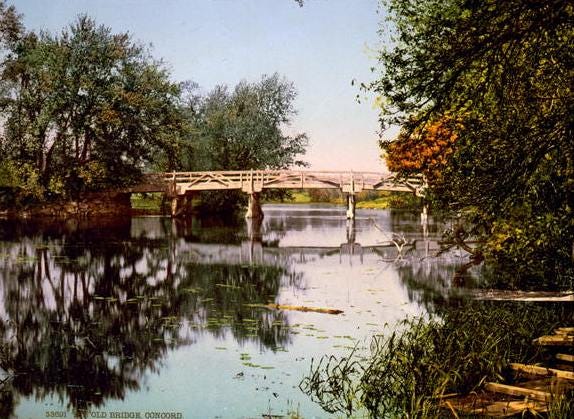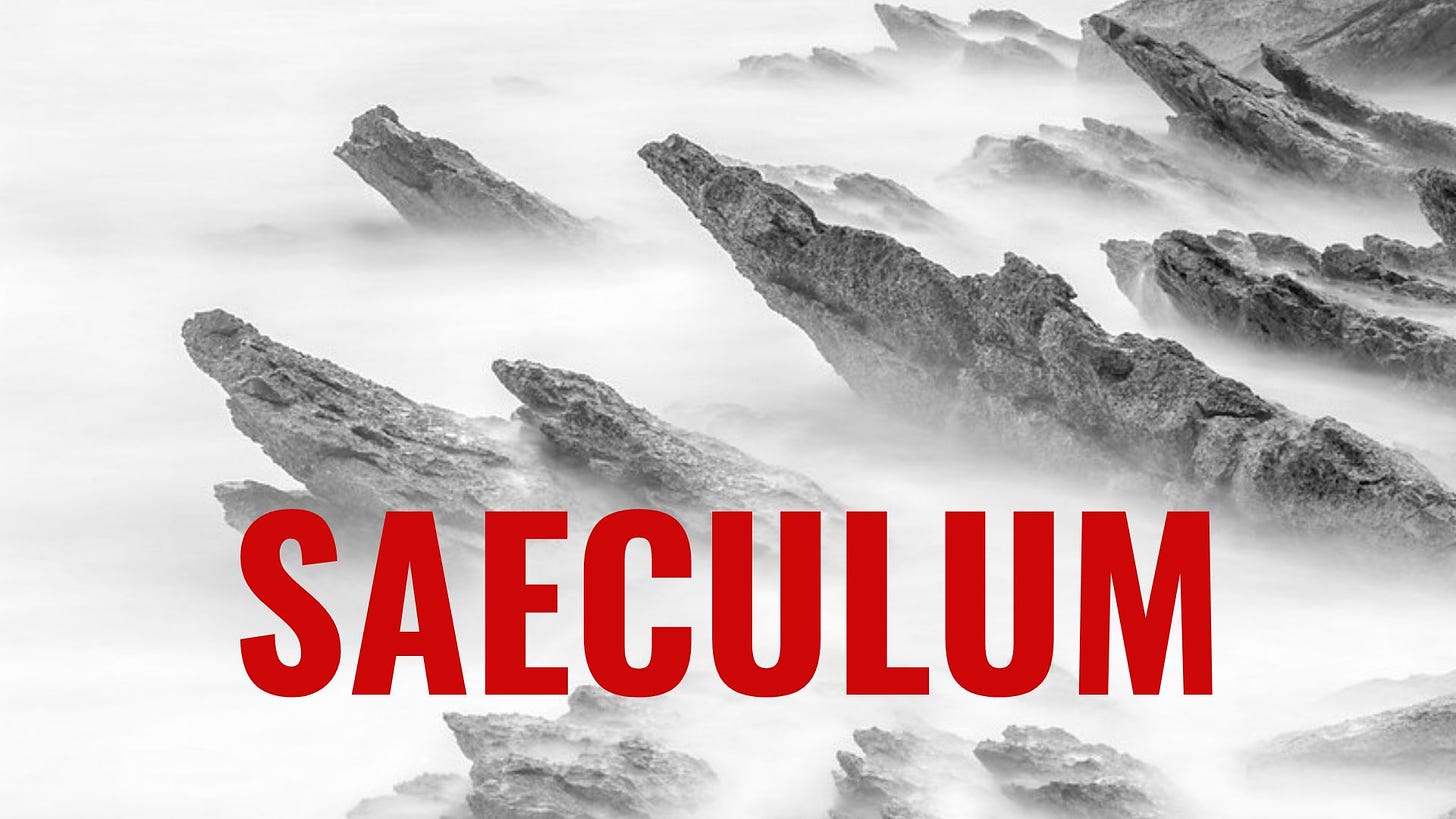Last Saturday morning, less than eight hours before a young man in western Pennsylvania fired his father’s rifle at a Presidential candidate, the poet Kristin Case addressed the annual gathering of the Thoreau Society in Concord, Massachusetts. For the past 83 years, society members have met each summer to discuss the life and work of Henry David Thoreau, a man who, like us, lived in a time of uncertainty and violence.
The subject of Case’s lecture was time — time as Thoreau imagined it, and time as we imagine it today. During the final decade of his short life, Thoreau dedicated himself to his “Kalendar,” a sprawling record of local and personal seasonal phenomena that ranged from the height of the Concord River to the first blooms of local plant species to the first morning he opened his window each spring. To Case, Thoreau’s cyclical record is the final and most elaborate of his attempts to escape from clock time — what the ancient Greeks called chronos — and access kairos, which refers to seasonal time but also suggests divine influence.
As she elaborated:
Kairos is connected not only to the divine but also to the earthly, the kind of time that is measured by ripeness is a calendar of overlapping and interrelated patterns of growth and decay, death and rebirth, a fullness in which the individual is understood as part of a web of connection, a member of the species, a participant in an ecosystem.
Conservation is often defined as the protection of space, but it’s also about the protection of time, of kairos. Protecting habitats and ecosystems protects the life cycles of their inhabitants, their particular ways of marking time — and allows us to remember those ways, to abide by them for a moment or an hour, even as our chronos saturation rises.
Year after year, as Thoreau’s Kalendar linked his daily habits to the rhythm of the seasons, he “discovered that time was plastic, that he could live in the cyclical unfolding of perennial phenomena,” said Case. This has been a week of plastic chronos, of speeding bullets and plummeting fortunes and fast-approaching elections. And yet kairos remains, expanding and contracting at its own pace, absorbed in its own dramas, and available to us all — as long as we take the time to save it.
News from all over
The temperate rainforests of Clayoquot Sound, on the west coast of British Columbia’s Vancouver Island, have been a political battleground for decades. In June, Ahousaht and Tla-o-qui-aht First Nations announced that they will be managing ten new old-growth forest conservancies covering almost 300 square miles, doubling the extent of the Sound’s protected forests. Steph Kwetásel’wet Wood of The Narwhal digs into how the deal got done and what comes next.
In Colombia, an environmental NGO is challenging the mining company Mincivil Topco in court, alleging that its operations are violating the “rights of nature” by fragmenting and polluted the country’s remaining tropical dry forest and endangering jaguars and macaws. Inside Climate News reports on the case and its place in the rights-of-nature movement.
Also in Colombia, a guerilla group has threatened to disrupt the U.N. Biodiversity Conference (COP16) in Cali this fall. A reminder that conservation, too, is vulnerable to political violence.
The concept of “legal personhood” for non-human entities is central to the rights-of-nature movement, and over the past decade Māori tribes, or iwi, have secured legal personhood for a river, a forest, and a mountain. But is legal personhood a useful tool or a distraction from a larger undertaking? In an illuminating article for Mongabay, Rachel Evans explores a range of Māori perspectives.
Closer to my own habitat, the U.S. Forest Service has approved a land swap that will permanently block mining on Colorado’s Mount Emmons, known as the “Red Lady” to those who live in its shadow. The deal ends a five-decade battle over mining on the peak; kudos to those who persisted on behalf of the Lady.
Words we need
One thing I’ve learned from years of writing about conservation is that the English language doesn’t have enough words for it, and those that we do have can be counterproductive. Even the most basic, like “nature,” reinforce the culturally-imposed distinction between humans and our ecosystems. I’ll use this section to recommend some words for wider use. Suggestions welcome!
I’m currently reading Orwell’s Roses, Rebecca Solnit’s wonderful exploration of George Orwell and his everyday joys. (For me it’s a stop on an impromptu Orwell tour, which has included a lovely audiobook of Orwell’s best-known essays — have I really stolen every piece of writing advice I’ve ever given from “Politics and the English Language”? — and Anna Funder’s Wifedom, which argues convincingly that the work of “George Orwell” is that of two people, Eric Blair and his wife Eileen O'Shaughnessy.) Solnit, during a reflection on trees and tree planting, tells us that the Etruscan word saeculum
describes the span of time lived by the oldest person present, sometimes calculated to be about a hundred years. In a looser sense the word means the expanse of time during which something is in living memory. Every event has its saeculum, and then its sunset when the last person who fought in the Spanish Civil War or the last person who saw the last passenger pigeon is gone.
When the saeculum ends, our baselines shift: when passenger pigeons fade from living memory, we no longer expect to see them. I like to think that there’s a saeculum for repair as well as loss, though. What would it be like to collectively forget the clearcutting of forests, or the burning of coal?
Miscellany
Congratulations to Maia Buschman of the Aldo Leopold Foundation on the premiere of her short film “Never to Revisit: Aldo Leopold, Eco-Grief, and the Value of Wilderness,” a visual essay that questions the arrogance of despair and argues that grief can be full of resistance.
Everyone who works on conservation should read or watch this essay by Emily Nagoski about what she calls “unimaginable hope” — and others call faith.
The recent death of Sen. James Inhofe, famous for throwing a snowball in the Senate to “disprove” the threat of climate change, has me wondering just how many degrees of excess heat we can blame on individual climate deniers. I await the Inhofe Memorial Attribution Analysis of the current heat wave. (I kid. And I do not.)


















I love this! I had a beautiful conversation about chronos versus kairos this past week and appreciate this beautiful perspective.
I really like your notion of saecula for healing and repair .. a wonderful aspiration.